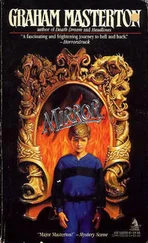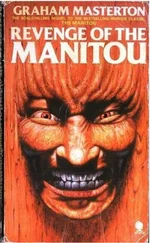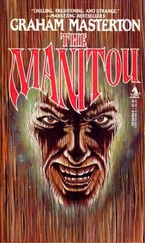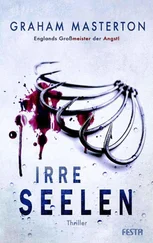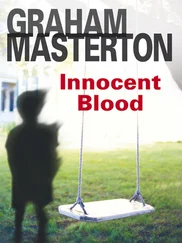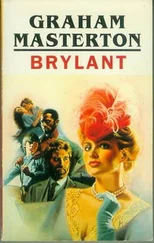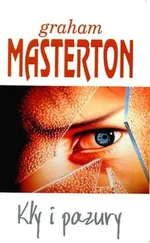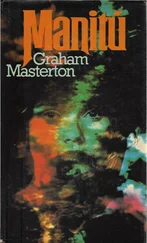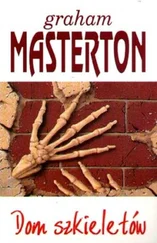“That’s what I thought,” said Josh. “What you’ve done is … taken the words right out of my mouth. Similar but critically different.”
John Farbelow lit yet another cigarette. “I felt as if I had been struck down by a thunderbolt. I couldn’t believe it. I wouldn’t believe it. How could there be another world where people went by train under the Channel and people flew to New York in three hours and there was color television and cures for tuberculosis and almost everybody was connected to almost everybody else by computer? And much more than that, another world where people were free to worship in any way they chose? Or not at all, if they didn’t want to?
“I couldn’t take it in. It almost drove me out of my mind. Winnie told me that it wasn’t all nice and that there was pollution and wars and overcrowding, but I knew that I had to go there, I had to see it. I felt as if I had spent my whole life inside the grounds of a lunatic asylum, never realizing that there was a world beyond the walls. A world where men weren’t hunted down with dogs because they wanted to worship with the Book of Common Prayer, or because they believed in the power and the purity of the Holy Virgin, or because they lit candles to Shiva.”
“So what did you do?” asked Josh, stroking Ladslove’s ears. The cat looked up at him as if he should have known already.
“I couldn’t go back to work, could I? I was working for Hoover, selling vacuum cleaners. And Winnie told me that where she came from, there were vacuum cleaners made of light colored plastic that were fifty times more powerful and didn’t need bags. Knowing that, how could I possibly go back to work? What was I going to tell my customers?
“Maybe it sounds ridiculous to you. But once I knew that better things existed, I couldn’t pretend that they didn’t. There was a cure for TB, for God’s sake! There were cures for cancer! Apart from that – much more serious than that – I knew that if men and women were free to worship somewhere in this universe, then they should be free to worship everywhere.”
Nancy reached out and – uninvited – touched his hand. Josh glanced at her with a slight tinge of jealousy, but she gave him a tiny shake of her head to indicate that John Farbelow needed closeness now, and personal warmth, if he was going to tell them what had happened to Winnie, and why he hated Frank Mordant so much.
“I went to Winnie’s flat early the next morning. She wasn’t there and her bed hadn’t been slept in. I went to Wheatstone Electrics and asked to see her. Frank Mordant came down himself and told me that Winnie had left Wheatstone’s of her own accord; and that she had left no forwarding address; and that nobody had any idea where she was.
“I stood and I looked him in the eye and said, ‘What about the Channel Tunnel?’ And he knew then that I knew what he had done; and who he was; because all he said was, ‘What about the Commonwealth? And what about the Hooded Men?’
“I knew then that my life was in danger, and I left as quickly as I could. I stayed with some friends in Kennington for a few days, and then I came here. To study.”
“Did you find out anything about the Hooded Men?”
“The Doorkeepers, yes. As you have plainly discovered, there are six doors between one London and the next. Into infinity. There are more Londons than you could ever imagine; and more New Yorks; and more Los Angeles. Some of them are so similar that you could never tell them apart, except for the color of their taxis and certain inflections in their speech. One London is flooded, and has gondoliers, like Venice. Another London is like a garden, with nothing but pagodas and summer houses, and firework displays almost every night.
“The Hooded Men guard the doors between these different Londons and patrol them and control any traffic between them. They keep them secret, of course, from the general populace. In this London, if anybody tries to say that they have come through the doors, the Hooded Men simply say that they must be dead people, returned from Purgatory, rejected by God and rejected by Satan. Nobody questions them. After all, they learned it all at school.”
“A Child’s Book of Simple Truth” said Josh, and John Farbelow bowed his head in acknowledgement.
“Some people in the other Londons have discovered the existence of the doors and tried to trade with the Hooded Men. After all, the doors are ideal for all kinds of illegal trafficking: whatever one London lacks, another London can supply. Drugs, women, antibiotics, luxury goods. The Hooded Men are very murderous and will travel through the doors to find anybody who crosses them or tries to cheat them.
“The only real answer is to close the doors, and to close them for ever.” John Farbelow paused, reflective.
Josh took a sip of water. “Can that be done?”
“I believe so. The doors are not a physical phenomenon. They are a psychic phenomenon. I am convinced that the six doors in London were created by somebody with exceptional psychic powers, and that they have been kept open for centuries by a succession of people of equal psychic ability – each one, perhaps, trained by the one before.”
“So if you find the person who’s keeping them open …?”
“Exactly,” said John Farbelow. “You kill that person, and the doors vanish.”
“Do you know who first opened the doors?” asked Josh.
“I believe that the doors were first opened in AD 61, in London, by Queen Boudicca. Also known as Boadicea. She was the wife of King Prasutagas who ruled over the Iceni people in East Anglia, during the time of the Roman invasion of Britain. When Prasutagas died, he made their daughters joint heirs to his property, along with the Roman emperor Nero. He probably had the mistaken idea that this would save them at least some of his possessions.
“But the imperial agent seized everything. Boudicca was flogged and her daughters were raped. Because of this insult, and because of Roman oppression, the Iceni rebelled against the Romans and Boudicca led an armed uprising against Suetonius Paulinus and his legions. The Iceni slaughtered the Roman garrisons in St Albans and Colchester, and then they attacked London and razed it to the ground.
“Boudicca had six or seven Druid advisers – one of them a very mystical senior Druid whose name nobody knows. In AD 61 the Romans were hunting down and killing the last of the Druids and these Druids had come to Boudicca looking for protection. They were very educated, the Druids. They had a written language and they believed in the immortal soul.
“Boudicca’s Druid advisers predicted by the entrails of their victims and by the flight of ravens that she and her army would be annihilated. So the senior Druid taught Boudicca how to open up doors to other existences.”
“How do we know this?” asked Josh.
“Because one of the Druids wrote it down. They wrote something like, ‘Boudicca lit three tapers. She consumed henbane and passed into another world.’”
“That sounds more like suicide to me.”
“That’s what historians have always assumed. After all, henbane is even more poisonous than opium. But the Druidic word for ‘consumed’ is almost the same as the word ‘burned’. And we know that the Druids used to burn henbane and breathe in the fumes to put them into a hallucinatory trance. In the Middle Ages, dentists used to burn henbane to dull their patients’ toothache. It’s very dangerous indeed. But it seems to have worked for Boudicca. It put her into a trance and she opened the six doors, so that she and the Druids and some of the Iceni could escape into the next reality.”
Josh said, “I have to tell you, this is a pretty hard story to swallow.”
Читать дальше

